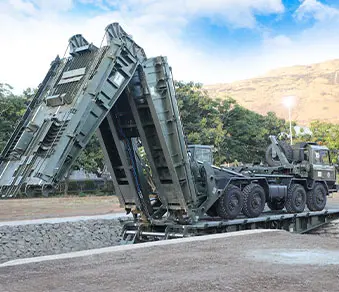How to Secure 100% of Your Shares if an Online Brokerage Firm Closes
In the modern investment landscape, online brokerage firms like Zerodha have made stock market participation more accessible than ever. However, the question of a brokerage firm closing down and the safeguards in place to protect your investments.
Understanding the Role of Zerodha and Other Brokerage Firms
A brokerage firm like Zerodha acts as an intermediary between individual investors and the stock exchange. It facilitates the buying and selling of financial instruments such as shares, mutual funds, bonds, and derivatives. However, brokerage firms do not own your shares—they merely provide you with a platform to trade and hold your investments.

Where Are Your Shares Held? Demat Account Safety Explained
Your shares are not held by the brokerage firm itself. Instead, they are stored in a dematerialized account (Demat account), which is maintained with a central depository such as NSDL (National Securities Depository Limited) or CDSL (Central Depository Services Limited). When you buy shares through Zerodha or any other broker, they are credited to your Demat account held with either NSDL or CDSL.
In case your broker shuts down, your shares remain safe because they are with the depository, not the broker. The depository is independent of the brokerage firm, meaning your assets are insulated from the brokerage’s financial health or operational status.
What Happens If Zerodha Closes Down? The Process of Brokerage Firm Closure
If a brokerage firm like Zerodha were to close down, several regulatory and procedural steps would take place to ensure the safety and transferability of your assets:
- Notice and Transition Period: Regulators like the Securities and Exchange Board of India (SEBI) would typically step in to ensure a smooth transition. Investors would receive notices well in advance, detailing the steps required to transfer their assets to another broker or reclaim them directly from the depository.
- Transfer to Another Brokerage: In most cases, investors are given the option to transfer their holdings to another brokerage firm. The new broker would simply link your Demat account with their trading platform, allowing you to continue trading without disruption.
- Access to Demat Account: Even if the brokerage closes, you can still access your Demat account through the depository (NSDL/CDSL) or through another broker. The shares remain in your name, and you maintain full control over your portfolio.
- Liquidation of Funds: If you have unused funds sitting in your brokerage account, those too are safeguarded. These funds are typically held in a separate client account by the broker, and they are required by law to return them to you if the firm shuts down.
What Happens to Your Trading Platform If Zerodha Shuts Down?
While your shares are stored securely in the depository, the brokerage’s trading platform may become inaccessible. This means you wouldn’t be able to trade until you move to another platform. However, during the transition, you can still track and manage your investments via the depository’s online services or once you have moved your account to a new broker.
SEBI Regulations and Investor Protection for Brokerage Firms

Indian brokerage firms are heavily regulated by SEBI, ensuring that they follow stringent guidelines to protect investor interests. Some of these safeguards include:
- Investor Protection Fund (IPF): SEBI mandates the creation of an Investor Protection Fund, which compensates investors in case of a broker’s default or closure.
- Segregation of Client Funds and Securities: Brokers are required to keep client funds and securities separate from their own assets. This ensures that even if a broker faces financial issues, client assets are not affected.
The Role of SEBI and Stock Exchanges
In India, SEBI and stock exchanges (like NSE and BSE) closely monitor brokerage firms. If any brokerage shows signs of financial instability, SEBI steps in to protect investors, freezing the firm’s operations to prevent further losses. Additionally, stock exchanges may assist in the smooth transfer of client accounts to another brokerage.
Final Thoughts on Zerodha and Brokerage Firm Safety
The closure of an online brokerage firm, while inconvenient, does not mean you will lose your shares. Your investments are securely held in a Demat account, safeguarded by regulatory bodies and independent depositories. In the event of a broker’s closure, there are well-established processes to help you transfer your assets and funds to another broker, ensuring that your portfolio remains intact.
While it’s important to be aware of potential risks, the Indian financial system is designed to protect investors from losing their hard-earned assets. Rest assured, if a brokerage firm like Zerodha were to close, you would still retain full ownership of your shares and have multiple avenues to continue trading or managing your investments. FOR MORE FINANCIAL UPDATE CLICK HERE



